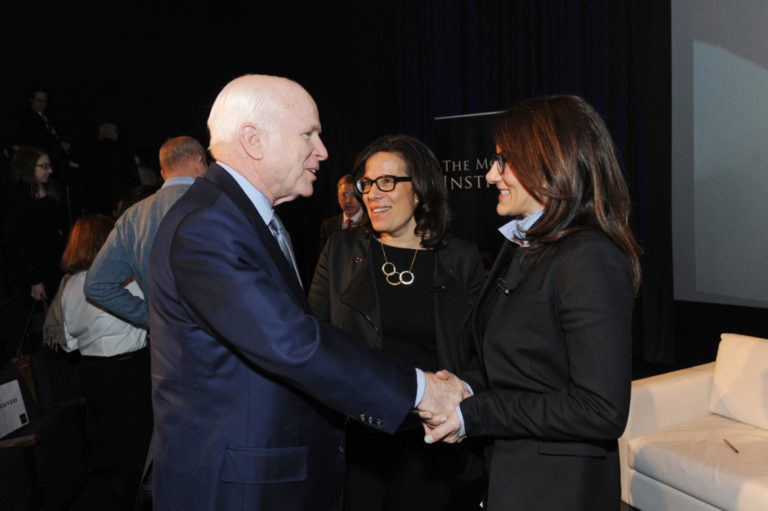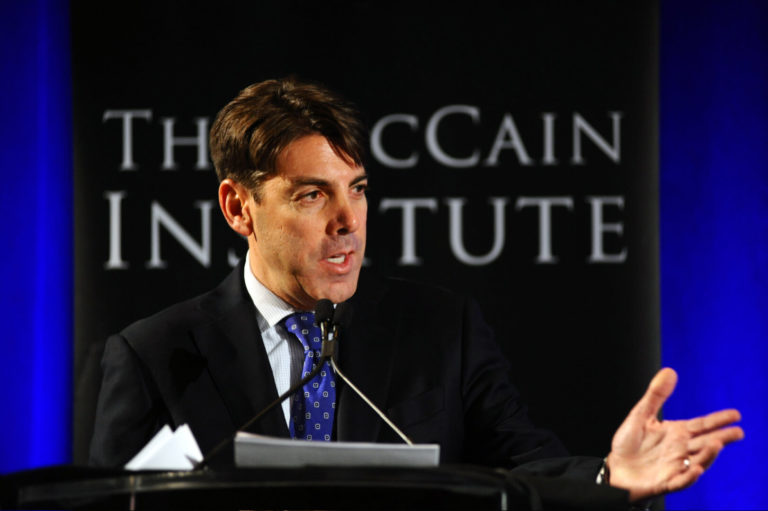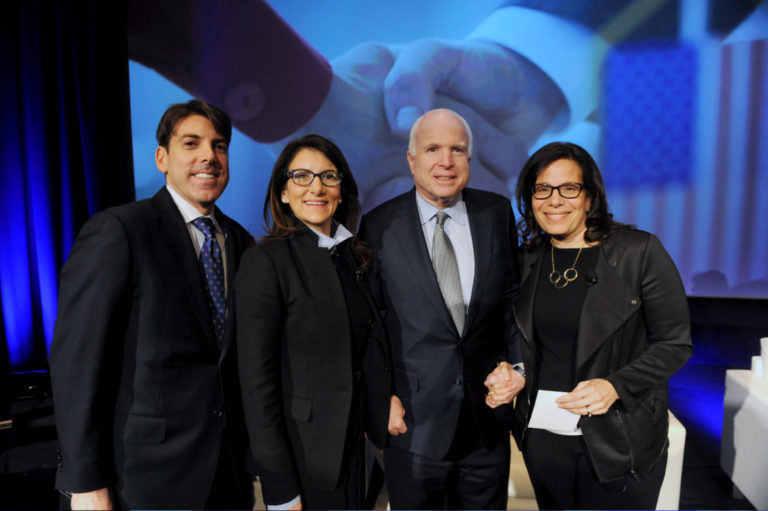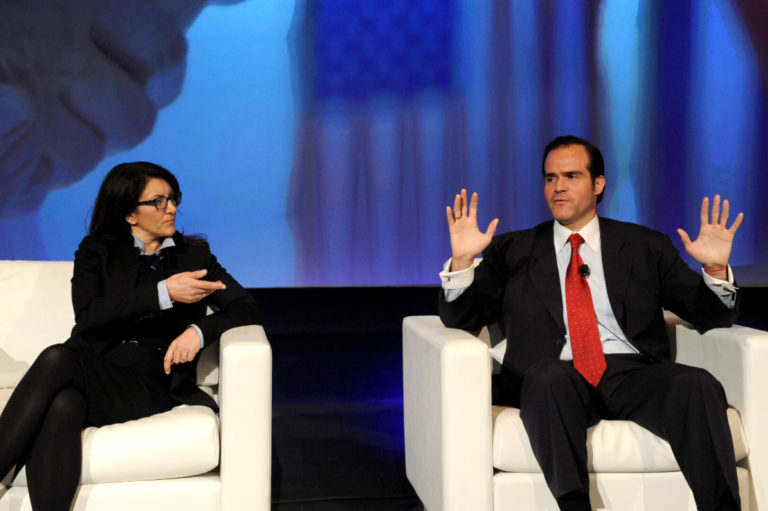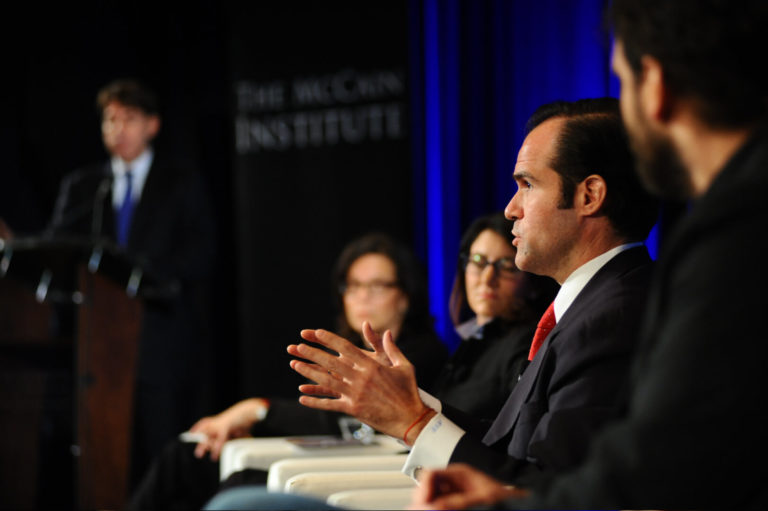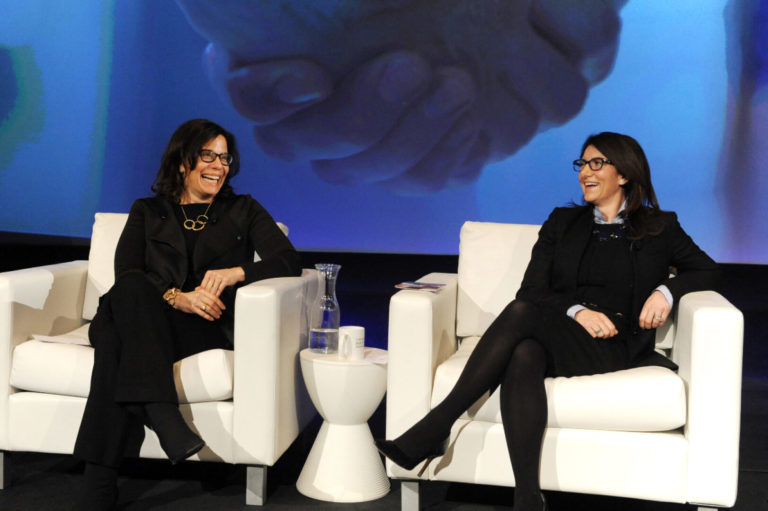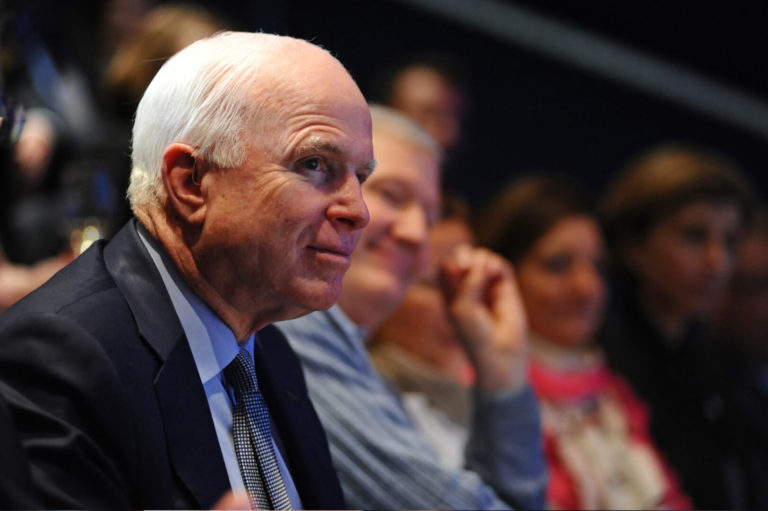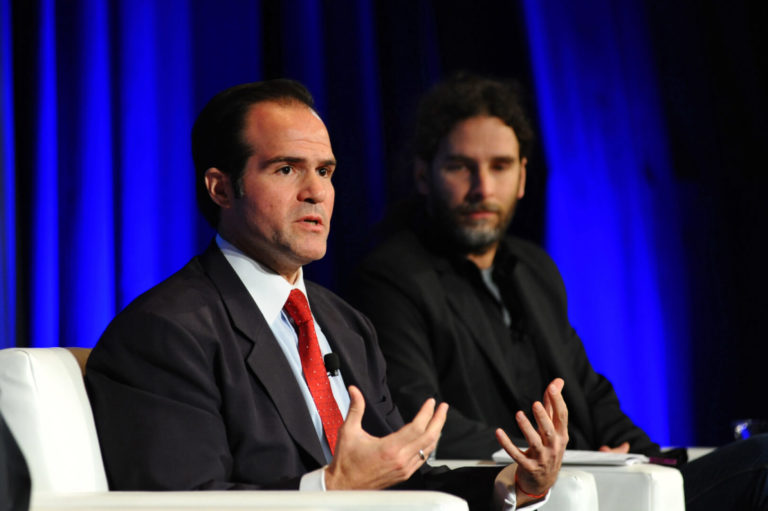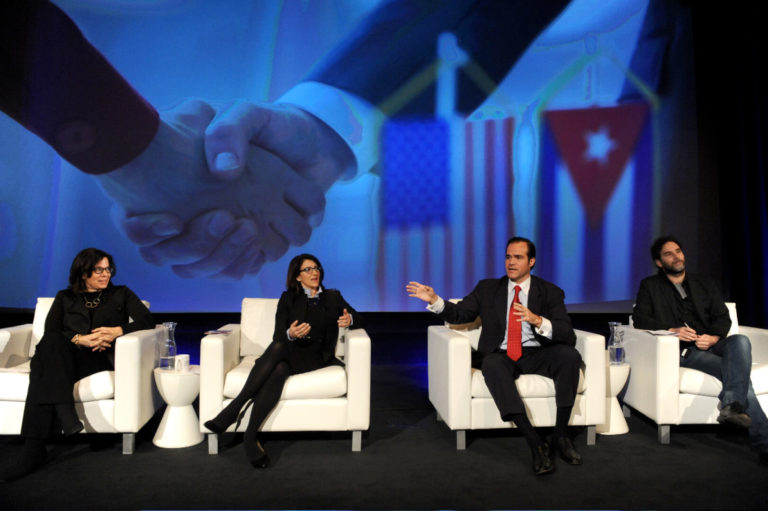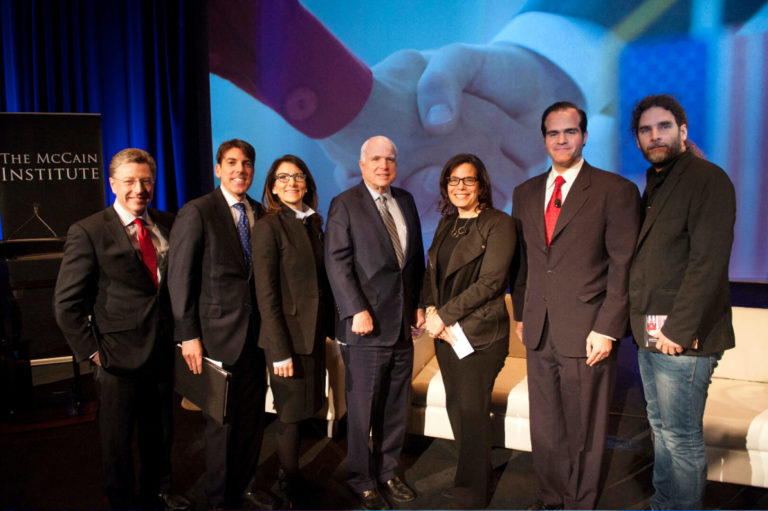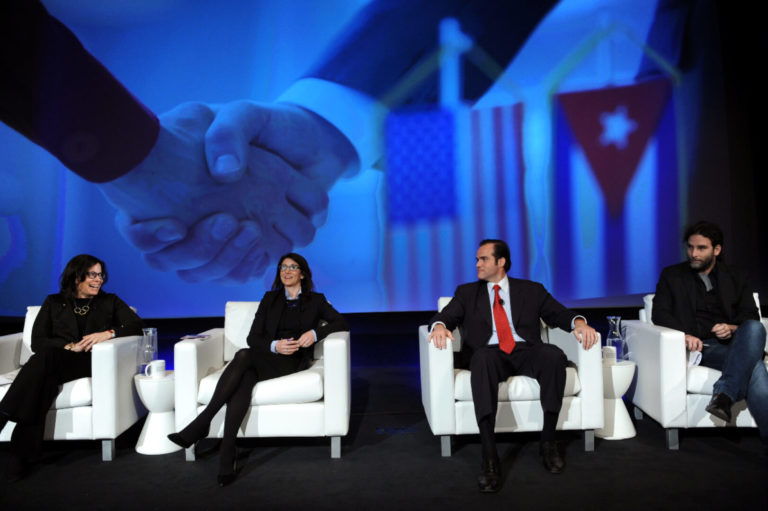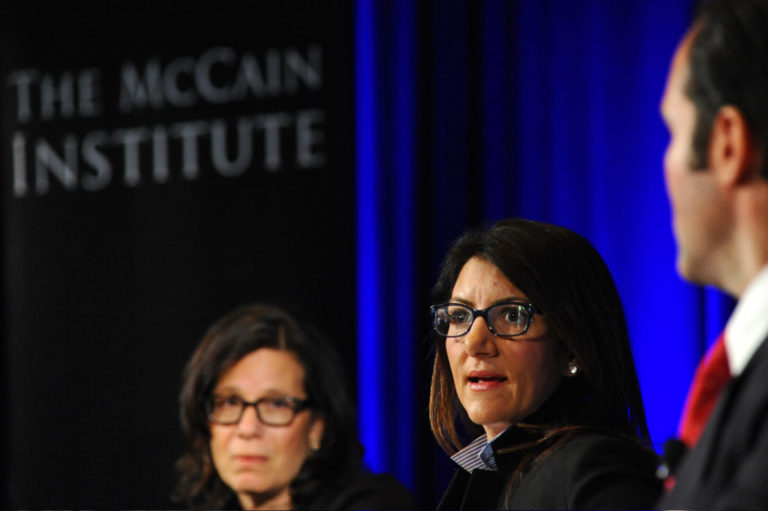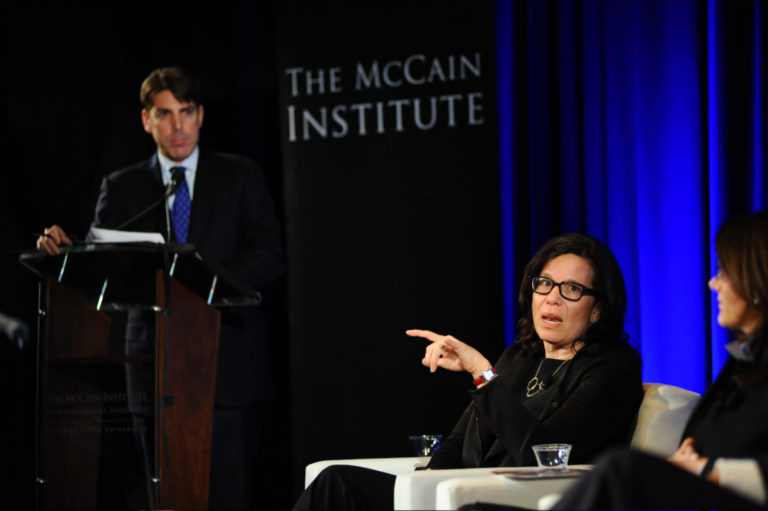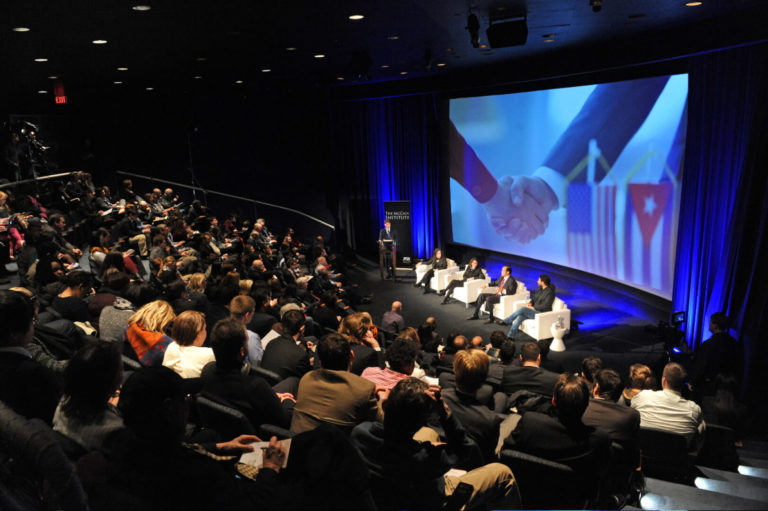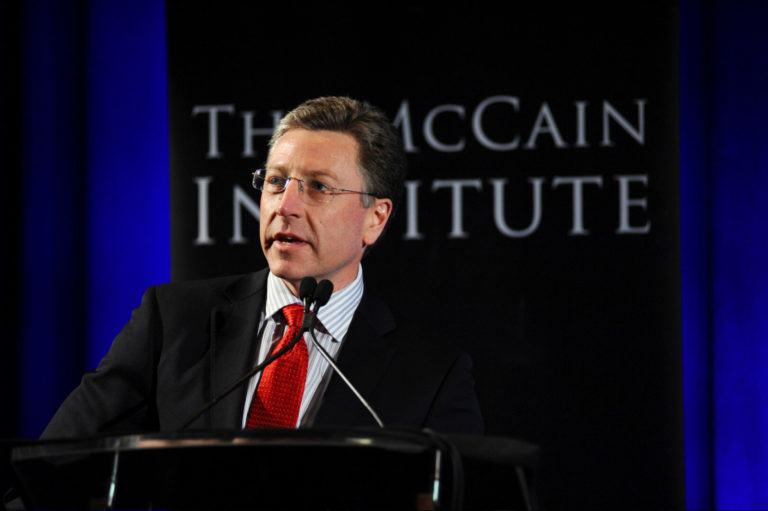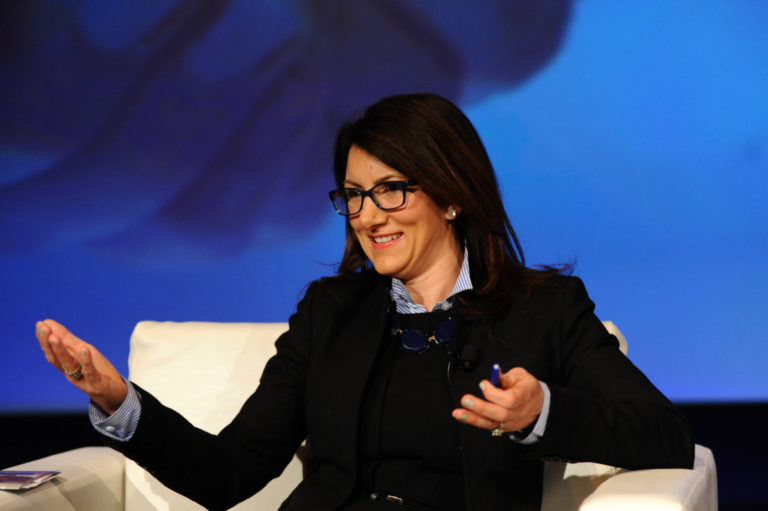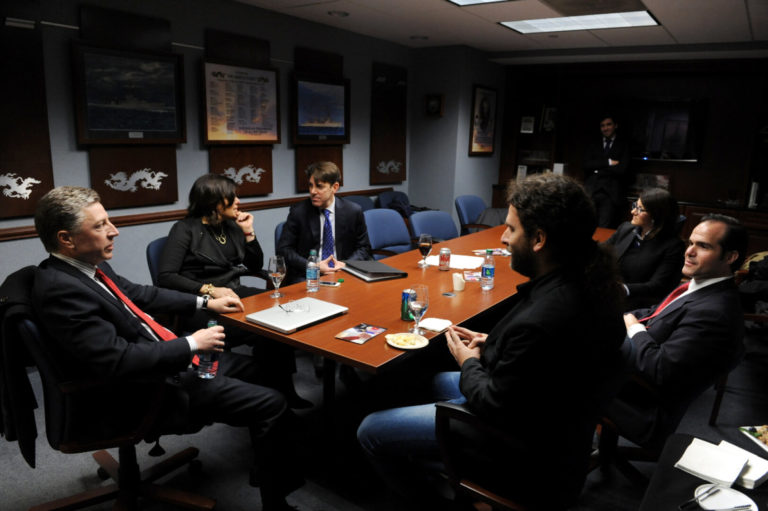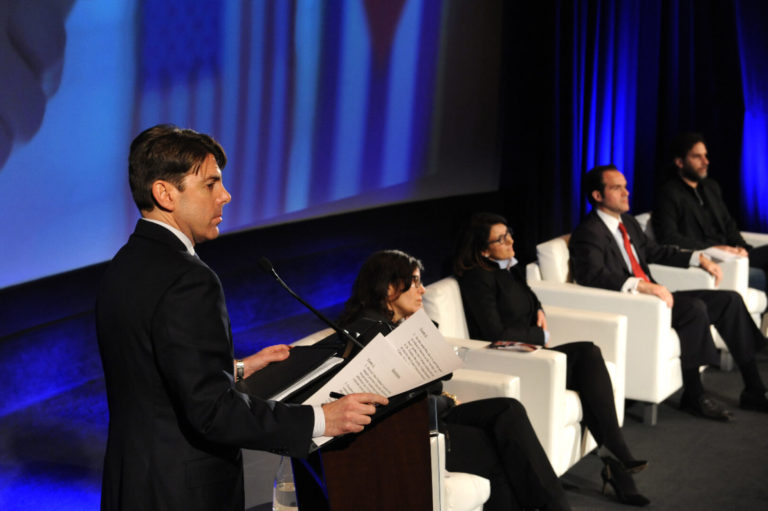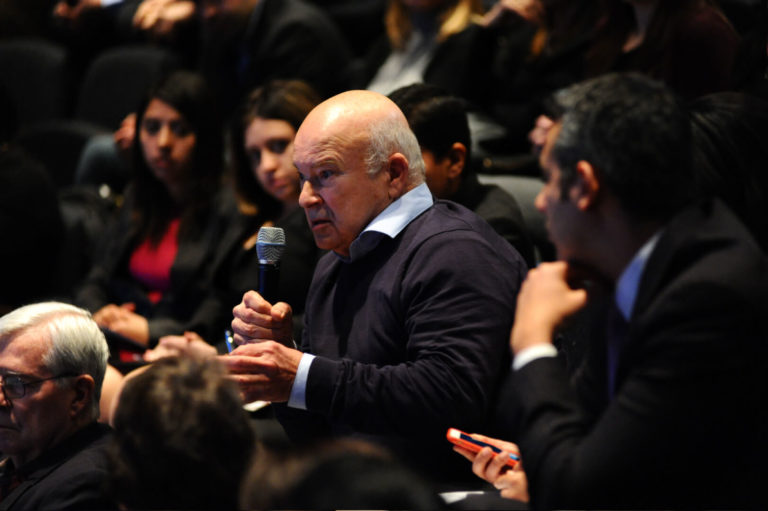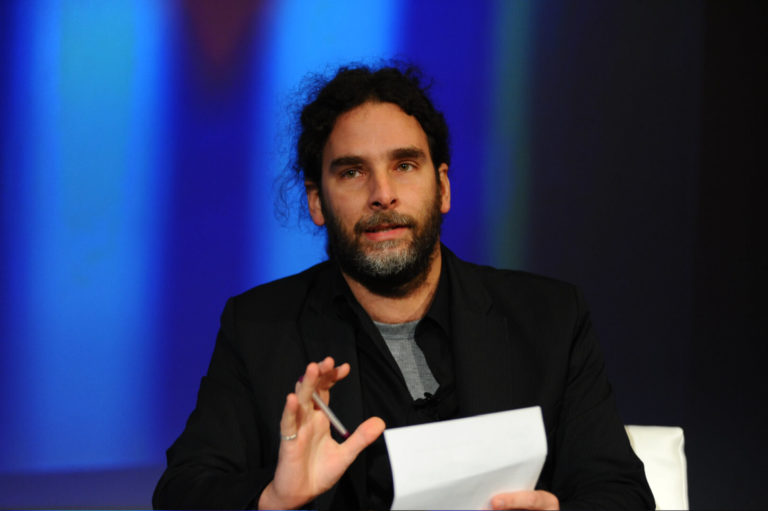Video
Event Summary
THE DEBATE: On Thursday, February 26, 2015, the McCain Institute for International Leadership hosted “A New U.S.-Cuba Policy: Did Cuba Win?” at the Navy Heritage Center in Washington, DC. Following President Obama’s December announcement of his intention to re-establish formal diplomatic relations between the United States and Cuba, debaters argued over the merits of renewed U.S. engagement with Cuba.
Key points made in favor of the new U.S.-Cuba Policy:
- Fifty years of sanctions and embargo have failed to bring about any meaningful change in Cuba – it is time to try new approaches.
- By expanding U.S. engagement with Cuba, we can have an empowered society and strengthen prospects for change from within.
- Strengthening entrepreneurship and the private sector can have a major effect on the opening of political space in Cuba. And the proximity of the United States to Cuba can contribute to faster economic growth and political impact.
- It is not an “either-or” proposition: it is possible both to engage with Cuba and support human rights and democracy at the same time.
- The new policy can create a platform for constructive discussion on pressing issues, and allow for cooperation on matters where Cuba and the United States share common interests, such as drug smuggling and human trafficking.
- Opening up to Cuba will strengthen the U.S. position in the Western Hemisphere more broadly, where the policy of isolating Cuba was extremely unpopular.
- The new policy can create a platform for constructive discussion on pressing issues, and allow for enhanced cooperation on matters where Cuba and the United States share common interests, such as drug smuggling, human trafficking, environmental remediation in the Gulf, search and rescue activities, and Center for Disease Control collaboration.
Key points made against the policy shift:
- Re-establishing relations legitimize the Castro regime. Thus the United States essentially gave the Castros what they wanted, while getting nothing in return on human rights or democracy.
- Having already played our hand, the risk now is that Cuba actually goes backward on human rights. It also sends a signal to others in the region, such as Venezuela, that they can get away without reform.
- Because all property is owned and controlled by the State, all economic engagement from the United States benefits only the regime.
- The United States should support those in Cuba who support democracy and change, rather than embracing the regime.
- Since the announcement of the policy shift, the number of people trying to leave the island has increased, indicating fears of a strengthened Castro regime.
- The negotiations on opening relations were conducted in secret by elites – left out were the Cuban people.
- A country with a history of violating international accords, sponsoring terrorism, and engagement in the narcotics trade cannot be a reliable partner for the United States.
THE RECOMMENDATIONS
Julia Sweig emphasized that approaching the Cuban government needs to continue in regards of foreign policy, national interest, and the Cuban-people, recognizing that it will be a slow process. Increased bilateral cooperation is necessary to address issues that impact both countries.
Jodi Bond argued that a change of policy is needed, when the old policies don’t work. Support for free enterprise and opening up of the Cuban economy to American businesses has the opportunity to transform the society.
Mauricio Claver-Carone argued that the United States is becoming a business partner of the Castro regime. To bring about change, the United States needs to support the reformers and the game-changers, not the regime.
Orlando Luis Pardo Lazo stressed that free markets require free people and that spread of the freedom of thought and moral values should be on the top of the agenda. Political change should be parallel to economic change, not secondary.
THE DEBATERS
ARGUING THAT CUBA LOST
Julia Sweig
Senior Research Fellow at the University of Texas-Austin Lyndon B. Johnson School of Public Affairs
Jodi Bond
Vice President of the Americas at the U.S. Chamber of Commerce
ARGUING THAT CUBA WON
Mauricio Claver Carone
Executive Director of the Cuba Democracy Advocates
Orlando Luis Pardo Lazo
Columnist for Diario de Cuba, Sampsonia Way Magazine, and El Nacional
MODERATOR
Jon Decker
White House correspondent for Fox News Radio
